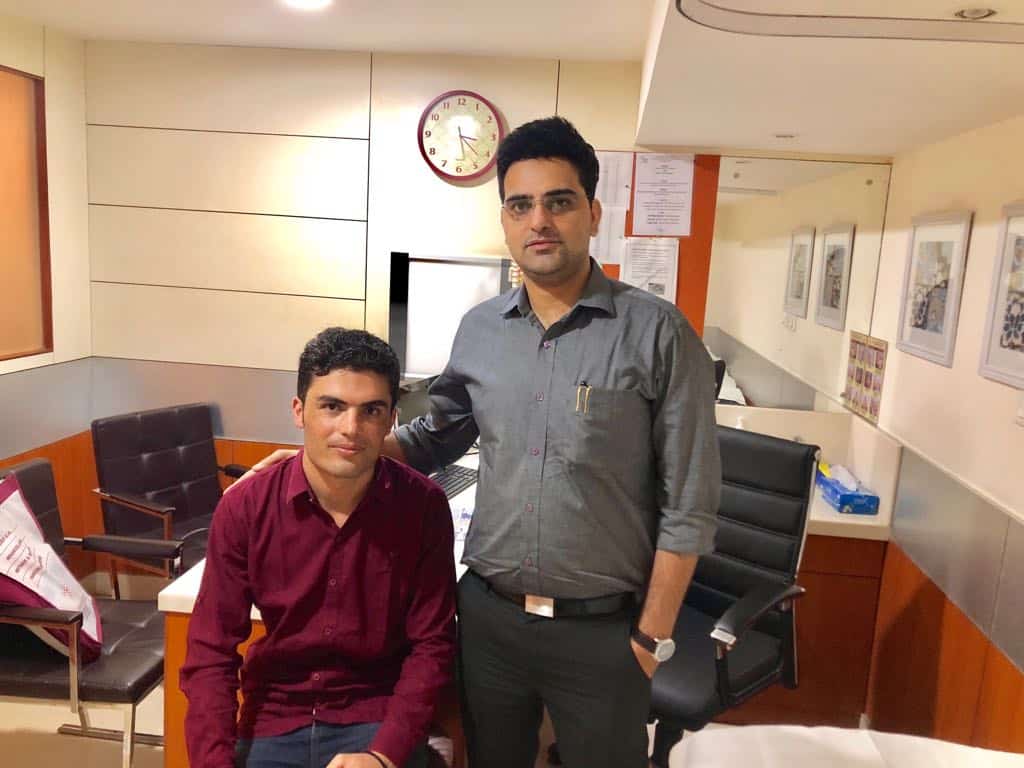How can you relieve my back pain?
If you have tried orthopaedic, neurosurgeon consultation & medication or physical therapy without much success, our treatments are the next step. The non-surgical treatments that we provide can help calm the pain at its source. Medications only mask the pain. Our procedures find the root of the pain and eliminate it as much as possible. The goals of treatment are to relieve, reduce, or manage pain and improve a patient’s overall quality of life through minimally invasive techniques specifically designed to diagnose and treat painful conditions. Interventional pain procedures also strives to help patients return to their everyday activities quickly and without heavy reliance on medications to pain free life.
Do the spine & pain treatments hurt?
No. All procedures can be performed while patients are under sedation. You will likely sleep through the procedure. This is why you must not eat or drink before your procedure — so that you may safely receive the sedatives. This will also prevent nausea afterwards.
How long will it take?
From check-in to check-out, your appointment will take approximately an hour and a half. If you are having a more advanced procedure, more time might be necessary.
Can I have a consultation without getting a referral?
Yes, if your insurance allows it. However, you must take responsibility for obtaining any previous records from doctors who have treated your condition. We must have these to design an effective treatment plan.
Could my pain return?
It could. Several procedures — like radiofrequency ablation or epidurals — may need to be repeated, depending on your individual symptoms. However, most pain does not return after such procedures for at least 1 year. If your pain returns quickly after you have had a full series of treatments, a consultation with your interventional spine & pain specialist may be necessary. Call our office to schedule a follow-up appointment to discuss any recurring pain. The physician or physician’s assistant can help you from there.
What should I do if I feel back pain again?
Call us. Talk to your physician or physician’s assistant. Tell us what you’re feeling. We may need to repeat your procedures. Or, the pain may be coming from another source.
How can I prevent back pain from returning?
Your therapy — exercise and physical therapy — is important in controlling your pain. Therapy is intended to keep your muscles from becoming too stiff or, in some cases, developing atrophy (wasting away of the muscle). Healthy, strong support muscles are a vital key in preventing and controlling spinal and hip pain. It is very important that you follow the therapy prescribed by the physician.
Will I ever need spine surgery?
More than 95% of patients who receive proper interventional pain management are able to avoid back surgery. However, in some cases back surgery is necessary. The procedures we have performed for you — even if they don’t solve your pain problem — have given your physician a clearer idea of what’s going on. Your physician now has more information on the cause and severity of your pain — which will help ensure a better outcome from surgery
What is the difference between acute and chronic pain?
Acute pain is pain of a short, limited duration which is usually the result of an injury, surgery or medical illness. Acute pain typically goes away within the normal healing process. Chronic pain continues for longer periods of time, and can be associated with frustration, depression and anxiety. Treatments for acute and chronic pain often differ greatly.
What is interventional spine & pain management?
According to the American Society of Interventional Pain Physicians (ASIPP), Interventional pain management is the super-speciality of medicine devoted to the diagnosis and treatment of pain related disorders with the application of interventional techniques in managing subactue, chronic, persistent and intractable pain, independently or in conjunction with other modalities.
What are interventional spine & pain management techniques?
Interventional pain management techniques are minimally invasive spine & pain procedures including, Image(live x-ray or ultrasound) guided perctuaneous precision needle placement, with placement of drugs in targeted areas or ablation of targeted nerves, and Minimally invasive surgical techniques such as laser or endoscopic discectomy,Percutaneous spine fusion,nucleoplasty,Minimally invasive discectomy, intrathecal infusion pumps ,deep brain stimulator and spinal cord stimulators.
Who are doctors specializing in Interventional spine & pain management?
Pain specialists come from various primary specialties with advanced training and expertise. They are mainly neurologist and anesthesiologists some time referred as “pain surgeon”. However, they may include orthopedic surgeons and interventional radiologists with the proper training.
What is minimally invasive spine surgery?
1. In an effort to overcome the disadvantages of traditional surgical techniques, the scientific medical community began exploring the use of endoscopy (arthroscopy). An endoscope (arthroscope) provides clear visualization and magnification of deep structures.
2. Now, because of advanced scientific technology and miniaturization, including fiber optics, video imaging technology, and experience gained through minimally invasive spinal surgery, there is a less traumatic discectomy procedure for some patients with disc problems.
3. It is Microdecompressive Endoscopic Spinal Discectomy, a form of Minimally Invasive Spinal Surgery. For simplicity, and because the term Microdecompressive Endoscopic Spinal Discectomy, doesn’t mean much to the average person, we call it simply, Minimally Invasive Spinal Surgery or MISS.
Can spine & pain specialist find the cause of my pain?
Your spine & pain specialist can find the underlying cause of your pain, they are highly trained in the methods that would allow them to do so. They conduct a thorough physical examination, review your medical records and analyze the description of your pain. Many doctors review additional diagnostic studies such as x-rays, CT scans, MRI’s, nerve conductions studies and detailed history and physical exam.
What medications are most commonly used to manage pain?
Anti-inflammatory drugs to alleviate pain by reducing swelling and irritation. There are alternative delivery methods for medications. Common methods used at the office are oral medications, topical creams, sublingual medicines, nasal sprays, injections and patches.





